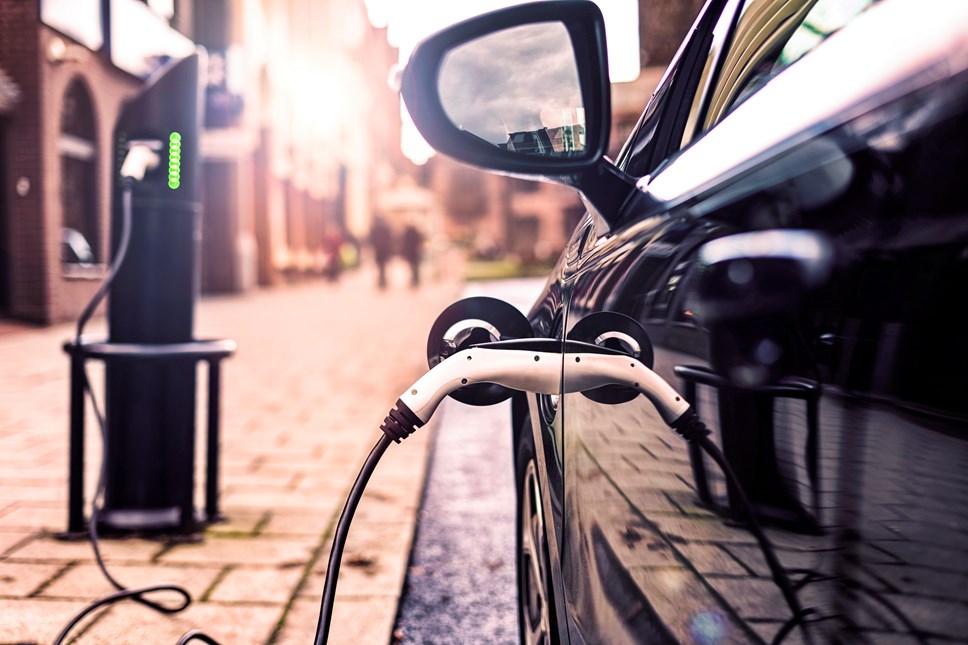
Alternative fuel cars overtake diesel according to potential car buyers
- 27% of drivers would opt for an alternative fuel car compared with 18% for diesel;
- Petrol is the most popular fuel type for new car buyers;
- GoCompare Car Insurance considers the insurance implications of owning an alternative fuel vehicle.
Ahead of the 19-registration plate being released on 1 March, research* from GoCompare Car Insurance reveals that if they were to buy a new car today, 27% of motorists would choose to buy a hybrid or electric powered car.
Petrol driven vehicles were the fuel type preferred by most (55%) potential drivers, but only 18% said they would favour a diesel car.
|
“If you were to buy a new car tomorrow, what would it be?” |
|
|
Engine type |
Percentage |
|
Petrol |
55% |
|
Hybrid |
22% |
|
Diesel |
18% |
|
100% Electric |
5% |
Alternative fuel vehicles (AFV) run on a fuel other than purely petrol or diesel, including electricity, gas or a combination of fuels such as gas bi-fuel and hybrid electric. They are more eco-friendly than conventional petrol or diesel cars, and fuel costs can be cheaper.
Alternative fuel vehicles (AFVs) are rapidly growing in popularity. According to figures from the Society of Motor Manufacturers and Traders**, in January 2019 total new car sales fell (down 1.6%) but the sale of AFVs grew by 26.3%, resulting in a 6.8% market share (sales of diesel vehicles dropped by -20.3%; sales of petrol cars were up by 7.3%). While sales are soaring, alternatively fuelled cars are still niche - which makes arranging insurance for them a bit more complicated.
Currently, not all insurers offer cover for AFVs and, those that do have relatively little experience of insuring this type of vehicle compared with petrol and diesel cars. This coupled with the higher purchase price of AFVs compared with equivalent conventionally fuelled cars and the associated costs of specialist replacement parts and repairs, tends to make insuring these cars slightly more expensive.
Some electric car owners opt to lease their battery (one of the most expensive components of the car) from the manufacturer. Drivers who lease a battery need to establish whether they or the manufacturer has responsibility for repairing or replacing the battery in the event of an accident. Not all insurance policies cover a leased battery, so drivers will need to take this into account when arranging cover.
Insurers of electric cars expect customers to take special care when charging their vehicle to prevent the charging cable from becoming a trip hazard – which could result in injury and a potential insurance claim. If it is necessary for the cable to run over a public pavement or, to refuel the car at a public charging point, then it’s essential to find a policy which provides liability cover.
Matt Oliver, car insurance expert at GoCompare commented, “Environmental concerns are increasingly becoming a factor in choosing a new car. As the government continues to place tighter restrictions on petrol and diesel cars and the infrastructure for fuelling stations improves, we’ll start to see many more alternative fuel vehicles on the road.
“At the moment, alternative fuel cars are pricier to buy than their petrol or diesel counterparts but, as demand increases, and more cars are made - prices will fall. This in turn will help drive down the cost of repairs and insurance for these cars.
“The market for alternative fuel cars is still in its infancy. So, compared with petrol and diesel cars there are fewer insurers to compare products from, so it is really important to shop around to compare cover levels as well as prices to make sure that you buy a policy that meets your needs.”
For more information on insuring electric and hybrid cars visit: https://www.gocompare.com/car-insurance/electric-cars-and-eco-vehicles/electric-car-insurance/
-Ends-
For further information please contact:
Anders Nilsson or Louisa Marsden at GoCompare on 01633 654 054 / 01633 655 132
Gordon, Jason or Liz at MAW Communications on 01603 505 845
Keep up-to-date with GoCompare on Twitter; @GoCompare
Notes to editors
*On 30 January 2019, Bilendi conducted an online survey among 2,000 randomly selected British adults who are Maximiles UK panellists. The margin of error-which measures sampling variability-is +/- 2.2%. The results have been statistically weighted according to the most current education, age, gender and regional data to ensure samples representative of the entire adult population of United Kingdom. Discrepancies in or between totals are due to rounding.
GoCompare
GoCompare is a comparison website that enables people to compare the costs and features of a wide variety of insurance policies, financial products and energy tariffs.
GoCompare does not charge people to use its services, and it does not accept advertising or sponsored listings, so all product comparisons are unbiased. GoCompare makes its money through fees paid by the providers of products that appear on its various comparison services when a customer buys through the site.
GoCompare does not sell its customers’ data.
When it launched in 2006, it was the first comparison site to focus on displaying policy details rather than just listing prices, with the aim of helping people to make better-informed decisions when buying their insurance. GoCompare has remained dedicated to helping people choose the most appropriate products rather than just the cheapest, and has teamed up with Defaqto, the independent financial researcher, to integrate additional policy information into a number of its insurance comparison services. This allows people to compare up to an extra 30 features of cover.
GoCompare is the only comparison website to be invited to join the British Insurance Brokers’ Association (BIBA) and is authorised and regulated by the Financial Conduct Authority (FCA).
For more information visit www.gocompare.com and www.gocomparegroup.com
